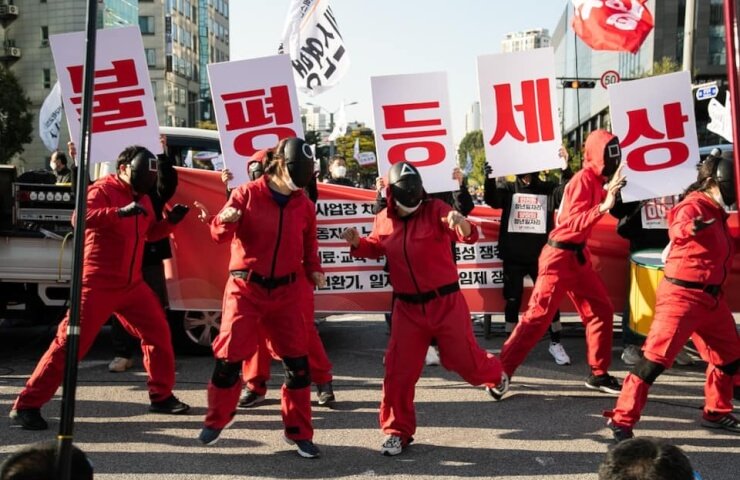The first strike will take place on April 19 and will involve 10,000 people, according to KMWU. In May, the second general full-scale strike will take place, and in July, the third general strike of the Korean Confederation of Trade Unions.
"Yun Suk-yeol's regime has declared war on the workers in the name of labor reform," said KMWU chairman Yoon Chang-hyuk. “They are violating autonomy by cutting wages through increased overtime, imposing a wage system, cutting wages by abolishing weekly vacation pay and denouncing trade unions as corrupt groups.”
KMWU said it had 180 members 000 members working in particular in the automotive, shipbuilding and steel industries. It has affiliates with domestic automakers Kia, Ssanyong, Hyundai and GM Korea, with domestic auto parts manufacturer Mando, and with domestic shipbuilder Hyundai Heavy Industries.
The union demands a minimum wage of 11,000 won per hour ($8.35 per hour) in the steel industry.
The country's Ministry of Commerce and Industry (Motie) released a strategy for the development of the steel industry last month, with Motie Minister Li Chang Yang highlighting the importance of managing labor force in the steel industry, while voicing concerns that some of the proposed amendments to trade union law could lead to activities being affected by illegal strikes.
“We will do our best to establish an advanced relationship in the field of labor management, corresponding to world standards,” he said then.
The strikes last year affected the oil, petrochemical and metallurgical industry of South Korea. On November 24, 2022, domestic truck drivers began an 11-day strike over wages and working conditions. The strike, which involved up to 25,000 truck drivers, disrupted 1.1 trillion won worth of steel supplies.




